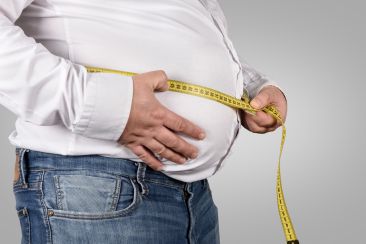
Can coffee make you gain weight?
Can Coffee Make You Gain Weight?
Many people around the world love coffee. It helps us feel more alert in the morning and provides us with the energy to get through the day. However, one question often arises: Can drinking coffee cause weight gain?
The short answer is that plain black coffee will not make you gain weight. Some studies suggest that drinking coffee without sugar or cream may even help prevent weight gain over time. But the story changes when we start adding things to our coffee. Sugar, sweet syrups and creamy toppings can turn a healthy drink into something high in calories.
Additionally, coffee can impact other aspects of your life. It can change how well you sleep or how stressed you feel. When sleep or stress is a problem, it can lead to eating more than your body needs.
In this blog, we will explore how coffee affects your weight. We will examine how your body utilises energy, what happens when you consume different types of coffee, how caffeine works, and why sleep is essential. We will also provide you with helpful tips to help you enjoy your coffee without gaining extra weight.
Let’s find out the truth about coffee and weight gain, using fundamental research and straightforward advice.
What Makes You Gain Weight? Understanding Energy Balance
Before discussing coffee and weight, it's helpful to understand how weight gain occurs.
Your body needs energy to work. You get this energy from the food and drinks you have each day. This energy is measured in something called calories.
If you consume more calories than your body uses, the excess energy is stored as fat. Over time, this can lead to weight gain. But if you use more calories than you eat, your body will use stored fat for energy, and you may lose weight.
This is called energy balance. It means your weight stays the same when the energy going into your body is equal to the energy going out.
Many people think only food can cause weight gain, but drinks matter too. Some beverages, such as fizzy drinks, milkshakes, or sweet coffees, can contain a high number of hidden calories. Because drinks don’t make you feel full, you might not even notice how many extra calories you’re having.
Even one teaspoon of sugar in your coffee adds about 16 calories. If you drink three or four cups a day with sugar and milk, the calories can add up.
So, when we ask if coffee makes you gain weight, the honest answer depends on how you drink it and what you add to it.
What’s in Coffee? Calories and Additives
Let’s look at what is really inside your coffee. If you drink black coffee with nothing added, it has almost no calories, containing only about 2 to 5 calories per cup. That means black coffee on its own is not likely to make you gain weight.
However, most people dislike the taste of plain coffee, so they add ingredients like sugar, milk, cream, or flavoured syrup to make it sweeter. This is where the extra calories come from.
Sugar
One small spoon of sugar has around 16 calories. If you add two spoons to your coffee, that’s 32 calories, and that’s before adding milk or cream. If you drink a few cups each day, the calories can quickly build up.
A study by Harvard researchers showed that people who drank unsweetened coffee gained less weight over time. But those who added sugar to their coffee were more likely to gain weight. You can read more about the study here.
Milk, Cream and Syrups
Some people like to add full-fat milk, cream or sweet syrups to their coffee. These make your drink taste good, but they also add a significant number of calories.
A large coffee from a café, with cream and syrup, can contain over 400 calories, which is equivalent to the calories in a small meal, such as a sandwich or slice of pizza.
Iced and Flavoured Coffees
Iced coffees, frappés and other sweet drinks can have even more sugar. Even if they are called “skinny” or “light,” they can still contain hidden sugars and calories.
So, remember, it’s not the coffee that causes weight gain. It’s the things we put in it that make the difference.
How Coffee Affects Our Weight
A lot depends on what goes into coffee regarding weight gain. According to research, black coffee does cause weight gain and may even help with weight loss. However, suppose you regularly indulge in a speciality beverage from your favourite coffee shop or heavily sweeten your daily cup. In that case, it may contribute to weight gain.
Knowing the nutritional content of your favourite coffee preparation is a good idea, especially if you're drinking it regularly. It doesn't mean you always have to drink your coffee black, but it's good to know how it's prepared. Taking these common coffee additives into consideration, here are the nutrition facts:
- Milk with 2% fat and sugar: 15 calories, 0.6 grams fat, 1.4 grams sugar
- There are four calories, 0.3 grams of fat, and 0 grams of sugar in unsweetened almond milk
- Approximately 40 calories, 3.5 grams of fat, and 1 gram of sugar in half and half
- There are 70 calories, 3 grams of fat, and 10 grams of sugar in Coffee Mate® French Vanilla Creamer
We'll take a look at a few popular coffee chain speciality drinks:
- 750 calories, 7 grams of fat, and 33 grams of sugar in the Starbucks® Grande Caramel Macchiato
- There are 390 calories, 14 grams of fat, and 50 grams of sugar in a Starbucks® Grande Pumpkin Spice Latte
- There are 480 calories in Starbucks® Grande Mocha Cookie Crumble Frappuccino® (It contains 24 grams of fat and 55 grams of sugar)
- A medium iced signature latte from Dunkin'® contains 440 calories and 14 grams of fat as well as 62 grams of sugar.
- There are 360 calories in a medium Dunkin'® Frozen Matcha Latte with 0 grams of fat and 82 grams of sugar per cup.
Consider this: 100 calories, 9 grams of fat, and less than 1 gram of sugar are the nutritional information for an individual cheese pizza from Domino's. One of these speciality coffee drinks can easily provide the equivalent of a meal's worth of calories, fat, and sugar, not to mention a day's worth of sugar. It is good news that most of your favourite coffee chains provide nutrition information for their drinks online or through their apps, allowing you to make an informed choice about your favourite beverage.
Additionally, you can opt for drinks that contain fewer calories and sugars. You can choose a "skinny" drink or request that it be made from skim milk with sugar-free sweeteners. Some of our patients enjoy using low-sugar caramel or vanilla-flavoured protein shakes as a creamer alternative at Form Health. It is low in sugar but still sweet enough, and it keeps them feeling full. Sugar-free syrups, such as those produced by Davinci Gourmet and Torani, also provide the same benefit by adding sweetness without all the calories.
Easy Mistakes People Make With Coffee
Although black coffee is low in calories, the way people consume it can sometimes contribute to weight gain. Let’s look at some common mistakes that many people don’t even realise they are making.
Having Snacks With Coffee
Many people enjoy having a biscuit, cake, or chocolate with their coffee. This can become a daily habit, even when they are not hungry. These snacks add extra calories that your body doesn’t need. Over time, this can lead to weight gain.
Buying Sugary Coffee Drinks
Café drinks can taste nice, but they are often full of sugar, cream, and syrup. A large caramel latte or iced coffee can contain over 400 calories, equivalent to the calories in a small meal.
Even drinks that say “skinny” or “light” can still have hidden sugar. So it’s essential to check what’s in your drink.
Adding Too Much at Home
At home, it’s easy to add a bit of sugar, full-fat milk or sweet creamers without thinking. If you drink several cups a day, these minor extras can add up quickly.
For example, one teaspoon of sugar has about 16 calories. Two teaspoons in three cups of coffee a day adds up to 96 extra calories.
Drinking Coffee When Bored or Stressed
Some people drink coffee when they feel bored or stressed. This can lead to mindless eating, where one grabs snacks simply because they feel tired or unhappy. If this happens often, it can lead to weight gain.
Does Caffeine Cause Weight Gain?
Coffee and tea contain caffeine, which is a naturally occurring stimulant. However, it can also be added to various drinks, such as sodas and energy drinks, to increase the caffeine content even further. Medication for cold symptoms also contains it.
The research conducted on caffeine's effects on weight suggests that it may have a positive impact on our weight, helping us lose and maintain weight rather than causing us to gain weight as a result of caffeine consumption. Generally, caffeine affects metabolism or energy expenditure in this way. As a result of caffeine consumption, we burn more calories per day, as measured by increased energy expenditure. In addition, some studies suggest that caffeine may help us curb our appetite, resulting in us eating fewer calories. One must also keep in mind that this should be balanced with a diet rich in adequate nutrition. It would not be a healthy weight loss strategy to replace food with caffeinated beverages in an attempt to lose weight.
Caffeine can also hurt our health, so consuming excessive amounts is not necessarily a good idea. In addition to causing an increase in heart rate, palpitations, anxiety, and difficulty sleeping, caffeine is a stimulant. Additionally, poor sleep has been shown to impact weight negatively, so reducing your caffeine intake may be beneficial if it keeps you awake at night or causes other adverse effects. It is also not recommended that you take caffeine supplements, as the FDA does not regulate them.
Coffee and Overall Health
Many studies have evaluated the effects of coffee and caffeine on health, as these substances are consumed frequently. The consumption of caffeinated coffee is not associated with an increased risk of cardiovascular disease or cancer. Although caffeine can increase blood pressure in the short term if consumed irregularly, regular coffee consumption does not have this effect. In addition, drip-filter and instant coffee do not appear to increase cholesterol levels, but unfiltered coffee and espresso do.
Nevertheless, the good news is that most studies on coffee and overall health have indicated that a daily cup(s) of coffee is associated with a reduced risk of developing some chronic diseases, including type 2 diabetes. So you can include it in your healthy, balanced diet as part of your daily cup(s). Remember, however, to be mindful of what else is in your cup besides the coffee itself if you intend to lose weight.
Frequently Asked Questions
Can drinking coffee every day cause weight gain?
Drinking black coffee every day will not cause weight gain. However, if you frequently add sugar, cream, or syrups, the calories can quickly add up. Weight gain from daily coffee usually comes from the extras, not the coffee itself.
Does drinking coffee with milk and sugar lead to belly fat?
Coffee with milk and sugar contains extra calories that your body may store as fat, including around your belly. If you drink several sweetened coffees daily, it could lead to weight gain over time, especially if you're not active.
Is iced coffee bad for weight loss?
Iced coffee is a suitable option for weight loss if you drink it plain or with low-calorie milk. However, many iced coffee drinks from cafés contain a high amount of sugar and syrups, which can slow down weight loss or even cause weight gain if not balanced.
Can coffee make you hungrier later in the day?
Caffeine in coffee may reduce hunger for a short time, but it can also increase your stress hormone (cortisol), which may lead to cravings or a feeling of being hungrier later. This can lead to overeating if you’re not careful.
Do flavoured coffee drinks make you gain weight?
Flavoured coffee drinks, like vanilla lattes or caramel frappés, are often high in sugar and calories. Drinking them regularly can lead to weight gain, especially if they replace water or healthy snacks in your day.
Is black coffee good for weight loss?
Yes, black coffee is low in calories and may slightly boost your metabolism, which can aid in fat burning. As long as you don’t add sugar or cream, black coffee can be part of a healthy weight loss routine.
How does drinking coffee before bed affect weight?
Drinking coffee late at night can disrupt your sleep, potentially leading to weight gain over time. Poor sleep changes hunger hormones and can make you eat more the next day, especially high-calorie foods.
How Weightloss Coach Can Help You Reach Your Weight Loss Goals
Weightloss Coach can help you if you are watching your coffee intake, regulating sugar and cream use, or following a healthy diet and are still not seeing the results you want. We carefully evaluate all factors that could contribute to excess weight with the guidance of our Board-Certified doctors and Registered Dietitians. The clinical team will develop a personalised weight loss plan based on your lifestyle, medical history, and needs. The Medical Weight Loss program at Weightloss Coach may be right for you if you want individualised guidance towards a healthy weight.


